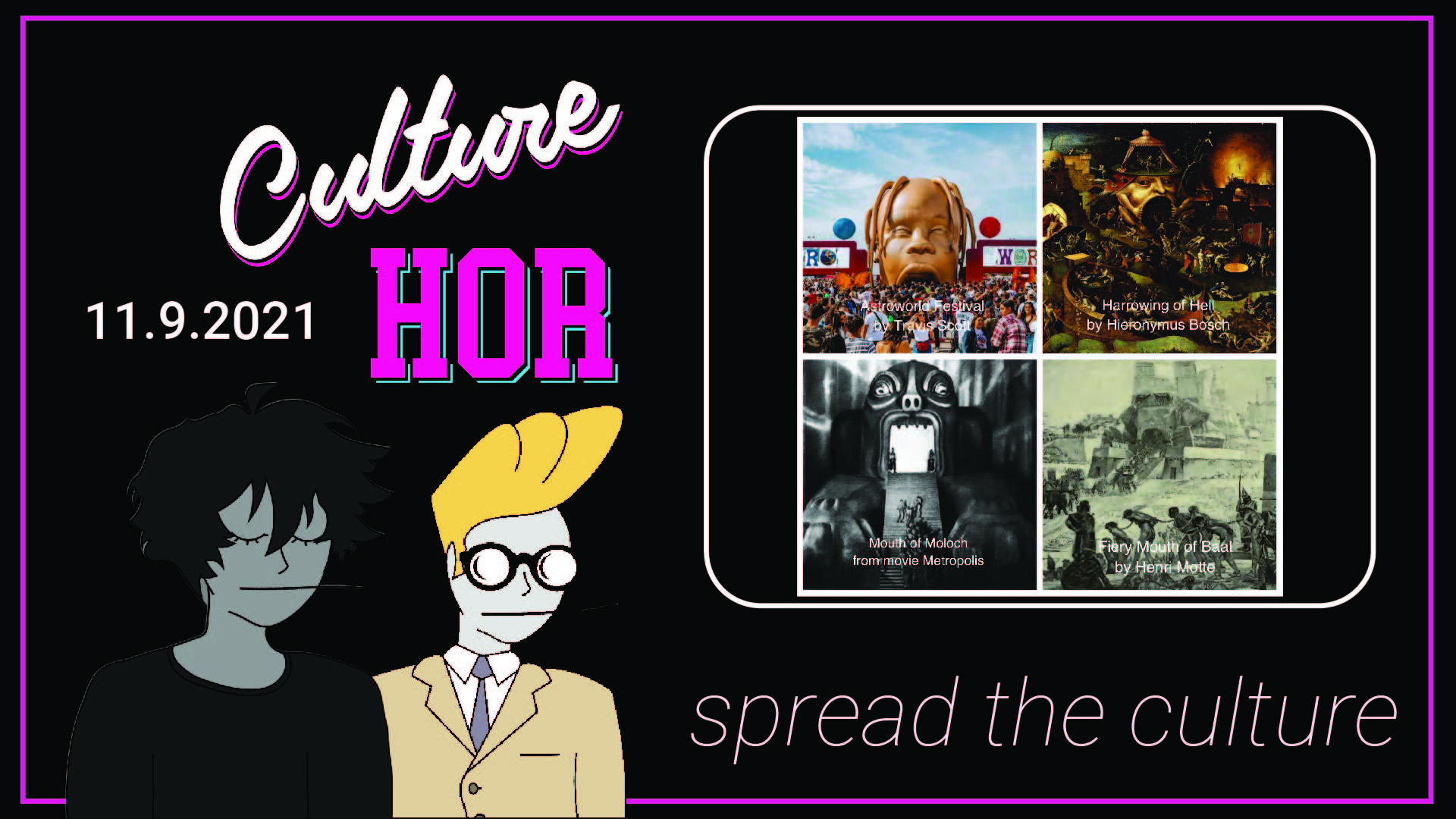Is Web3 counter or culture? Is blockchain punk rock or sellout? Is crypto commercial or cool? We hate trying to make sense of it all, but we’ve made a career of it, anyway. So, please, read on for our college try (read: brief, belligerent, and borderline blacked out) at answering it, which, today, is the only thing important on the Internet.
Chad & El Prof
Markets
(Price changes reflect past 7 days as of 12.7.21 @ 4:20 PM EST.)
- Bluechip tokens look as dismal as ever in the face of vast, looming depression. (Not economic or great or anything. Just winter.)
- Analysts, however, note megacap cryptocurrencies’ bounce back as bullish investors consider extreme market sentiment — that crypto is a volatile Ponzi and/or harbinger of the end of democracy — to be the ideal time to buy in.
The (silk) road to perdition.

We’ve maintained since we started this little thing that the roots of Web3 extend to the BitTorrenting and P2P and dark web adjacent shit we were all getting into back when Napster was a thing. Now the connection has come full circle. Ross Ulbricht, the founder of Silk Road slash currently serving a life sentence for his kingpin role in the eComm drug ring, is auctioning off his own collection of NFTs.
Silk Road — the black market as eBay, minus the snuff films and AKs — was powered by Bitcoin, which could be exchanged on the platform for any goods or services that didn’t cause a third party bodily harm. (So, drugs, mostly.) One of the first platforms to run on blockchain, SR stemmed from Ulbricht’s staunch libertarian ideals and ended with a rare death-in-prison sentence for a nonviolent conviction — the classic Greek tragedy arc our own founder El Prof stands to face if he gets his way someday.
In the meantime, Ulbricht has become an embodiment of the old quote: ‘You either die an Internet folk hero or live long enough to see yourself become a DAO.’ Yes, the FreeRossDAO‘s mission is about as unoriginal as its name, albeit if only as transparent. At the time of publication, the DAO has raised ~1550eth (almost $7m) to ‘unite in solidarity for Ross, [gather] funds to buy his Genesis Collection, and [protest] the injustices of the American prison system.’ How buying an exorbitantly priced collection of pencil sketches will prove anything remains to be seen, but it also remains the sole practical function of DAOs, so here we are. At least the proceeds go to charity. It was between that and a new wing in the FBI headquarters.
Much like alt right skinheads went from ‘fringe deplorables’ to ‘edgy personality for white kids to try on’ to ‘mainstream political demographic in America’, counterculture ebbs and flows with the popular lexicon in mysterious ways. Waves crest and break, then crash back into the ocean, undistinguishable. So the Web3 journey goes — from ‘encrypted platform for drug deals’ to ‘much hyped future of the creator economy’ to ‘late stage capitalism repackaged under an incoherent acronym.’
Ah, well. The least we can do is paddle away ourselves. So, as we prepare to launch our own NFT collection later this month, it will be accompanied not by a DAO, but a ‘centralized autonomous organization’, or, CAO. Because, if nothing else, we call spades spades and cows cows, and feel it’s worthwhile to recognize that ‘autonomy’ and ‘decentralization’ are oxymorons when paired with ‘organization’.
Anyhow, if you have a couple mil in ETH lying around and are as eager as me to raise a finger to any DAO, get your bids in. The auction ends tomorrow.
Seas sells out.

Here’s a spiritual successor to our story of counterculture commercialization above. OpenSea, the NFT marketplace boasting a controversial moral compass and utterly unprecedented market share (in other words, the most Web2 company around) is selling out. Color me a blurry pixelated Pikachu.
OS recently announced they will soon go public. As unsurprising as the news that a massively popular corporation would like to keep making more money please is the news that their core fanbase hates them for it. We’ve seen it with Fall Out Boy. We’ve seen it with L.L. Bean. And now we’re seeing it with the crypto degens whose highfalutin philosophizing on how the blockchain will change the nature of finance, business, and culture as a whole just got kicked in the balls by a big brass bull.
I wish I had something more intelligent to say on the matter than no shit Holmes. But in some musings I legally urge you not to take as financial advice, I’ve gotta say, an intelligent investor might find themselves jumping on that IPO as soon as it opens. I’ve got a sinking feeling, on these high seas, mega corporations ain’t going nowhere.
A state of the DAO address.

The timing has never been better to elaborate on the vehement DAO distaste we espoused above. My old ELP classmate Jonah Erlich — who, as we recently mentioned, was a core catalyst in the ConstitutionDAO excitement a few weeks back — landed an extensive interview with The Verge this morning to discuss his role in the DAO and thoughts on the real world implications and bottlenecks that stem from blockchain’s use cases. I was excited to find that he seemed as clear eyed as me regarding the discrepancy between the promise of crypto and the current realities of so-called trustless, decentralized technologies.
The reported goal of the ConstitutionDAO (aside from the National Treasure of it all) was to maximize the decentralization of any individual process — even if it means centralizing other aspects to achieve it. This distinction became relevant as the DAO fielded requests from contributors that the leadership holding the keys to the treasury identify themselves to the public.
While I believe strongly in the individual right to privacy, that right is guaranteed only by sharing and maintaining a few critical pieces of information publicly — namely, your identity. I contend that there will always be a need for points of centralization like this, in order for the trustless computer protocol utopia favored by the most optimistic degens among us to ultimately work. No one states this obvious, because it means addressing the giant elephant in the room: verifiable identity, online.
We’ve long seen the havoc that click farms, anon trolls, and bot swarms have wrought on economies, governments, and individuals, but the thought of introducing any sort of identity program, beyond our existing Social Security, blurs the line between libertarian-utopia and crypto-fascist state. Why? Because we don’t trust large public entities (read: corporations, governments) to manage such sensitive information without abusing it.
At the same time, because fairness is important for the trustless infrastructure to operate, we also need safeguards against individuals being able to amass more than one identity and corrupting the processes we’re fighting to decentralize in the first place. So, the question becomes: how do we create a decentralized governance structure that also simultaneously enables individuals to conduct non-public lives?
This is the fundamental problem we HORs have been grappling with internally, being somewhat of an organization ourselves. DAOs in their current iteration — Discord servers designed to raise capital insanely fast and deploy it equally inanely — mark little improvement over the pay-to-play state of most large institutions. And the first few attempts at Proof of Identity have fallen remarkably flat. But centralization is clearly also broken, and the decentralization of individual processes seems like a cause worth fighting for. Luckily, there’s a whole Internet full of Nic Cage cosplayers out there, ready to do just that.
SLOPPY SECONDS
- Twitch streamers are now as popular — and depressed — as real rock stars
- An analysis of Reddit radicalization for those who still subscribe to JSTOR
- In a world looking more and more like Succession, at least someone takes his job seriously
- And, because my competitive ego demands it, I too, was recently interviewed this past week — tune in for twenty minutes of my digressions, or just reply directly to this email to start a thread where I might actually answer a question



